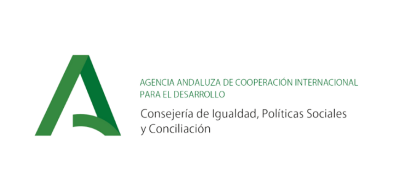HWC Foundation holds meetings for the delegation of the Spanish University of Jaen with representatives of the Palestinian health sector
Within the project to modernize the protocols of chronic non-communicable diseases, which the Health Work Committees Foundation began implementing in the Palestinian territories from 2021 to 2023 and with the support of the Spanish University of Jaín, a delegation representing the university visited the Health Work Committees Foundation, which included Javier Diaz, Dr. Maria Luisa, and Dr. Anna Maria, Dr. Juana Maria, and met with the management of the Foundation represented by the Chairman of the Board of Directors Ali Hassouna, Dr. Ibrahim Abu Ayyash, Director of the Health Care Department, Hanan Abu Ghosh, Director of the Women's Health Program, Amal Ibrahim, the representative of the project and a number of its employees, along with the media official Khaled Al-Faqih.
The Spanish delegation was briefed on a presentation by the Foundation on what has been accomplished from the project so far and what is left for the next stage within its objectives aimed at raising awareness of chronic non-communicable diseases through education, designing a special electronic observatory, training the medical staff of the Foundation and working on developing and reformulating protocols for non-communicable chronic diseases. Contagious in Palestine and a protocol on violence against women.
The strategies of the project were also presented, the most important of which is the implementation of the electronic observatory, awareness against Corona, training of medical staff, the implementation of a digital training platform and workshops on violence against women.
The Foundation also made it clear that its work within the project will be with various grassroots institutions, universities, schools, volunteers and other institutions to achieve desired successes, something that the Health Work Committees Foundation previously achieved through its programs and projects in various regions. Where all segments of society will be targeted. Information materials and educational materials, including brochures and posters, will be produced, knowing that some of them have been completed so far.
For its part, the Spanish delegation expressed its admiration for what it saw and heard, expressing its hope to continue the work and future cooperation with the health work committees due to their reputation and achievements.
Ali Hassouna, Chairman of the Board of Directors, presented to the delegation the history of the institution and its work since its inception in 1987 and its various stages of development, including the stations it passed through.
He touched on the recent Israeli attack on the institution, which was the storming and sabotage of the institution and the confiscation of some of its materials, in addition to the arrest of its general manager, Shatha Odeh, and a number of employees, and an order to close it by a military order rejected by the Ministry of Health, ministries, institutions, social forces and various civil institutions and reopened its closed headquarters.
He explained that the Israeli attack on Palestinian NGOs is continuing, although these institutions are subject to Palestinian laws and enjoy licenses according to them and are located in areas under the control of the Palestinian Authority, and that this Israeli targeting aims to block the funding of these institutions and intimidate their supporters.
After that, another meeting was held that included the University of Jaen and the Health Work Committees Foundation with representatives of the Palestinian health sector. It was attended by Dr. Nancy Al-Falah, the Palestinian Ministry of Health, the UNRWA Dr. Munira Al-Abed, and the medical relief Dr. Suhail Okabna. Where they presented to the delegation their role and plans with regard to the issues of chronic diseases and gender-based violence.
Dr. Al-Falah talked about how the Ministry of Health applies protocols for chronic diseases and how to provide services to patients and all segments of society, including people with disabilities, and said that the ministry has adapted its protocols to the response imposed by the Corona pandemic, in addition to continuing to work on the issue of gender-based violence in all its facilities and clinics.
As for Dr. Munira Al-Abed, she presented the mechanisms of work in the agency’s clinics within the protocols that are based on collecting electronic information for patients, diagnosing patients, recording their age and sick history, and how the protocols are applied, including periodic follow-up and during the corona virus, a program for home visits to patients was adopted. Regarding the abused women, she confirmed that the agency referred the abused women to specialists after filling out a follow-up form.
In turn, Dr. Aaqabneh spoke about the role of medical relief, especially through the nine mobile clinics that operate about 110 sites, in coordination with the rest of the health service providers, where the protocols of the Ministry of Health are applied, and during the recent pandemic, work was shifted towards home visits to spare patients from moving and contracting corona.
And he touched on the relief organization working with the ministry to encourage citizens to get vaccinated against Corona.
Dr. Ibrahim Abu Ayyash confirmed that everyone adheres to the protocols of the Palestinian Ministry of Health as an umbrella for health work, in addition to the protocols of the World Health Organization.
The visit of the delegation from the University of Jaen will continue until 4/5/2022 and will include meetings and field visits to Palestinian gatherings and universities and to the work sites of the Health Work Committees Foundation.




